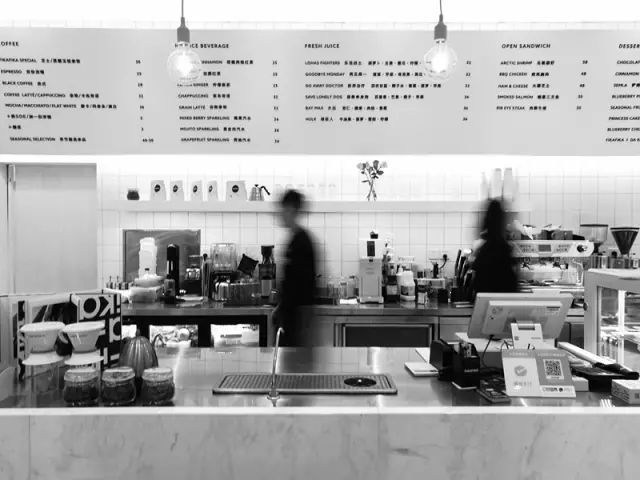Thai Coffee Story _ is the coffee in Chiang Mai, Thailand good? how does Thai boutique coffee taste?

Professional coffee knowledge exchange more coffee bean information please follow the coffee workshop (Wechat official account cafe_style)
Chiang Mai has a long history of monasteries, and has always been regarded as the cultural capital of Thailand, permeated with the slow pace of life and traditional atmosphere. But over the past decade, this quaint city has gradually blossomed into a cosmopolitan city, and highways and modern buildings have emerged, attracting many creative careers and young entrepreneurs. Now, in addition to Chiang Mai, which is full of stylish art galleries and restaurants, coffee culture is particularly popular, and northern Thailand is finally on the road to fashion.
A few years ago, a young barista and world-class coffee flower master noticed the development potential of Chiang Mai and seized this rare opportunity. Arnon Thitiprasert, nicknamed "Tong", while tasting Ethiopian espresso, recalled why he decided to leave the boutique coffee shop he founded in Sydney and bring coffee culture back to his hometown Chiang Mai: "I love coffee very much, and I could choose to stay in Sydney for a few more years to make more money, but I want to take a chance when I am still young, in case coffee culture and business cannot be done in Chiang Mai. I still have time to start over. "
He opened a Ristr8to coffee shop on Nimmanhemin Road in 2011. At that time, boutique coffee had just been introduced to Chiang Mai, and the main customers were local expatriates and tourists, but Thais gradually discovered this new way to enjoy breakfast drinks. "Thais are deeply interested in Western and foreign cultures and curious about our coffee, so they want to taste it and learn more about it," Tong said.
After some efforts, he was also rewarded. Nimmanhemin Road, located a few blocks west of the old city, is now the coffee center of Chiang Mai and is said to have the highest number of coffee shops in Thailand. This style community deviates from the main tourist route, but attracts local students, foreign nationals and passing coffee fans, many of whom come to Ristr8to to taste the delicious coffee from this famous restaurant.
● it is a common practice locally to mix condensed milk and lots of granulated sugar with instant coffee brewed in ice water. Although this kind of coffee is still mainstream in restaurants in the district, one or two professional coffee shops can always be found in the alley.
The international coffee shop chain has been stationed in the region in the early years, but it has not been a success. Local artisanal coffee shops began to appear only six or seven years ago, but they quickly took root. This phenomenon is largely due to several local artisanal baristas, including Tong. They are more than international coffee city teachers, and then bring technology back to their hometown to serve delicious coffee to their compatriots. "I traveled all over the world to study coffee, but in the end I just wanted to bring this technology back to my hometown and start a coffee culture here," Tong said.
Ristr8to coffee beans come from famous coffee bean producing areas around the world, but Thai coffee beans are also used. Tong said foreigners usually don't mind trying locally grown coffee beans, but locals underestimate them. As imported coffee beans have to pay 97% tariff, coupled with other costs, the price is much higher than local coffee, so under the influence of the concept of "cheap without good goods, good goods are not cheap", local people naturally support foreign coffee beans. But Tong's coffee roaster, Ristr8to Lab, is just across the street from the coffee shop, where coffee courses are often held to teach customers to appreciate beans from different places.
He said: "now everyone knows that as long as they are brewed properly, local coffee beans in Thailand can also brew delicious coffee. Apart from paying attention to the cultivation methods and baking process, a high-quality cup of coffee also requires excellent baristas. Every link is equally important and indispensable. "
Walk north from the coffee alley on Nimmanhemin Road for a few minutes and you can find a small coffee shop called Akha Ama Cafe. Its storefront design is not eye-catching, reflecting the fashion atmosphere of Ristr8to. Coffee shop owner Ayu Cheupa (everyone calls him "Lee") cooperates with coffee farmers in his hometown Akha village to provide coffee beans grown in an ethical and sustainable manner, successfully occupying an important place in Chiang Mai's coffee map, and the company's business model ensures that all villagers can benefit from it.
"I see that many indigenous villages are poor, and so are our villages, so I am determined to use my experience to help the villagers improve their lives," Lee said. Coffee is the second largest trading commodity in the world (the first is crude oil), and coffee beans have always been grown in our village, so it is only natural to develop the coffee industry. "
● the northern mountains of Chiang Mai began to grow coffee beans decades ago, mainly taken care of by aboriginal farmers in the mountains. In 1983, the Thai royal family strongly encouraged villages in northern Thailand to give up opium cultivation and grow coffee to get rid of poverty. The government not only provides Arabica coffee saplings to villagers, but also teaches them how to plant them. Akha Village is the first small town to see coffee as a new source of money, and now it has become the leader of the local coffee bean industry in Thailand.
Although Lee is the first college graduate in this remote village, he knew nothing about coffee, let alone to develop it into a business. "I visited a local coffee shop for coffee just to see what it was," he said. I was dazzled by the menu in the store, and finally I ordered the first item on the menu: espresso. "
Italian espresso is thick, small but bitter, and is likely to scare people who taste it for the first time. However, after tasting this cup of coffee, Lee went on to taste other flavors in the store, and finally he began to study ways to make coffee around the world, including the United States and London.
In order to achieve the principle of "fair trade", Akha Ama Coffee Shop does not buy coffee beans from coffee merchants. "We buy coffee beans directly from coffee farmers, and we manage the whole roasting and sale process, so they are more profitable than the farms contracted with the baking company," Lee said. We insist that coffee farmers must use environmentally ethical methods to grow coffee beans and rest their fields regularly so that they do not destroy the land and do not have to be unable to maintain their traditional farming and way of life like many coffee farmers outside. This mode of operation sometimes encounters difficulties. Last year's frost wiped out 40% of our harvest, but in the long run, this method is still the best. "
Since the establishment of the company eight years ago, the quality of life of the villagers has been generally satisfactory, and the supply of tap water and electricity in the villages is more stable than before. At the same time, more and more young villagers are able to receive higher education. Lee added: "our company has also changed the public's inherent ideas and prejudices against mountain aborigines."
●, how do Thai coffee beans taste? Akha Ama's coffee is not disappointing at all, and its beans have twice been shortlisted in the finals of the World Coffee Cup Test Competition, thus leaping into the top coffee in the world.
No matter what kind of coffee you like, you can find an incomparably rich choice in the narrow alleys of Chiang Mai, and with such talented coffee lovers like Lee and Tong, Thailand is just around the corner to create the richest and diversified coffee culture in the world.
Qianjie coffee: Guangzhou bakery, the store is small but a variety of beans, you can find a variety of unknown beans, but also provide online store services. Https://shop104210103.taobao.com
Important Notice :
前街咖啡 FrontStreet Coffee has moved to new addredd:
FrontStreet Coffee Address: 315,Donghua East Road,GuangZhou
Tel:020 38364473
- Prev

Thai Coffee Culture and Thai Coffee History _ what brands are there except Starbucks Thai Coffee?
Professional coffee knowledge exchange more coffee bean information Please follow the coffee workshop (Wechat official account cafe_style) Thais love coffee, but it is by no means the aesthetic and romantic complex of "life is to be wasted on good things" in the West. Their coffee culture is the same as our tea culture in Taiwan. Coffee has entered human life since the 14th century.
- Next

The traditional cafe is too traditional, how to break it? How to shape the image of coffee brand?
Professional coffee knowledge exchange more coffee bean information Please pay attention to the coffee workshop (Wechat official account cafe_style) when there is competition in all industries, unless you have a very strong brand core competitiveness, in the environment where the marketing battlefield is changing faster and faster, how can traditional cafes seize the essence to build core brand competitiveness? Now in traditional cafes, it seems that Weibo
Related
- What documents do you need to go through to open a coffee shop? coffee shop coffee shop certificate processing process
- How to purchase Coffee beans in small Cafe how to choose a suitable supplier for domestic Coffee supply Company
- How to drink Starbucks Fragrance White Coffee? how to make Australian White Coffee? what Italian coffee beans are recommended?
- The Story of Flora Coffee: the name of Flora Coffee Bean and the implication of the Flowers on Florna Coffee
- How much does a cup of coffee cost? How much is the profit of a cup of coffee? What is the profit of the coffee shop in a year?
- Yunnan small Coffee, known as "fragrant Coffee", introduces the characteristics of Alpine Arabica Coffee producing areas in Yunnan, China
- 2023 latest Starbucks full menu price list how much is a cup of Starbucks coffee what is better to drink the most popular hot and cold drinks recommended
- Starbucks different kinds of Coffee Price list Starbucks menu 2023 Top Ten Best drinks in Starbucks
- Starbucks Spring praise Comprehensive matching Coffee Bean theme Story Packaging implication and taste description
- The cost of a cup of coffee latte American coffee cost price and selling price

